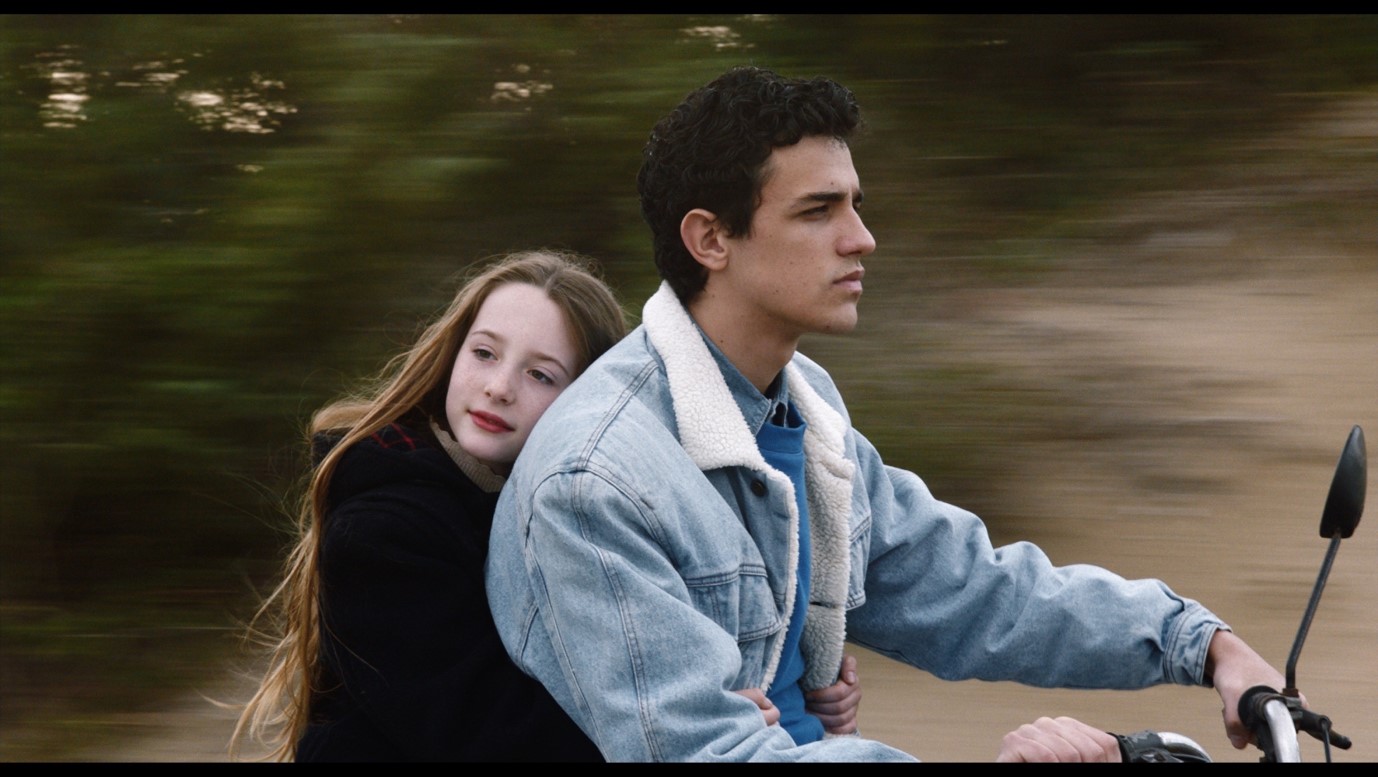‘Magari’ (If only) directed by Ginevra Elkann (Italy 2019) opening the Italian Film Festival in London, 4th– 9th March 2020, www.institutfrancais.org.uk/cinema-italy
Film Review by Khalid Ali, Film and media correspondent, Medical Humanities
A seminal survey from the Italian Society of Paediatrics exploring the life style of more than 11,000 adolescents showed that ‘one in five teenagers witness physical or psychological aggression in their family’. Almost 4% of that cohort reported living in ‘reconstituted families’ of one parent plus his/her new partner. In times of mental stress, young girls predominantly turn to their friends for help and support instead of confiding in their parents, school teachers or professionals such as psychologists or psychiatrists.[1]
These complicated coming-of age issues facing Italian youths are poignantly explored in ‘Magari’ by first time director Ginevra Elkann. Alma (Oro De Commarque), Jean (Ettore Giustiniani) and Seb (Milo Roussel) are siblings of divorced parents Charlotte (Céline Sallette) and Carlo (Riccardo Scamarcio). Charlotte lives with her new husband Pavel (Benjamin Baroche) expecting their new baby. Similarly Carlo is in a relationship with Benedetta (Alba Rohrwacher). The children are sent to spend the Christmas holidays with their father skiing. But their first disappointment comes as soon as they arrive at their father’s house when they find out that he cannot afford an expensive skiing holiday. Carlo is extremely busy writing a screenplay for a film, and has little time to spend listening to or talking with his kids. Each one of them has to find their own escapade; Alma daydreams of the moment when her parents reunite, Jean, who is diabetic, lives in a fantasy world worshipping ‘Steve Austin’ his TV hero, the Bionic man from the 70’s American series ‘The Six Million Dollar Man,’[2] while shy Seb turns to religion as a devout Orthodox to distance himself from daily arguments.
With a notable lightness of touch, Elkann centres her film on Alma whose voiceover tells us volumes about her loneliness. In-spite of living amongst a highly dysfunctional family, Alma does not dwell on feeling sorry for herself; she turns to making and selling bracelets, bonding with the family dog and even warming up to her father’s new partner. Every night she solemnly prays for her parents’ getting back together again. The trials and tribulations of growing teenagers experienced by Jean and Seb are handled without moralistic judgment of their delinquent behaviour. Drinking alcohol for the first time, driving a car without a licence, flirting with an older woman and a forbidden kiss are natural rites of passage the two boys navigate without parental guidance.

In the absence of committed parents, these children are struggling to be loyal to either parent as that inevitably means betraying the other one. Jean’s accidental fall and admission to hospital escalates the tension. Feelings of guilt consume the children when their mum and dad start accusing each other of being neglectful. Trying to find a ‘safe place’ is not an easy task when they are surrounded by hostility and aggression exchanged between their nearest relatives. By bonding with each other, the kids are trying to be emotionally resilient. Friendship, even if it is a fleeting relationship doomed to end soon, is another saving grace. Coming to terms with loss, deception and lies in an adult world is an everyday ‘fact of life’ that they have to accept and move on. If they can’t have a traditional happy family living under one roof, they can still make one in their fanciful world, and create ‘happy memories’.
Told in intimate detail describing tender moments of a rapidly disappearing childhood, ‘Magari’ is a small gem reminding viewers that caring for and listening to our young children is a starting point to their future mental health and well-being.
[1] Smorti M, Milone A, Gonzalez G, et al. Adolescent selfie: an Italian Society of Paediatrics Survey of the lifestyle of teenagers. Ital J Paediatr 45, 62 (2019).
[2] ‘The Six Million Dollar Man’ TV series, 1973-78 https://en.wikipedia.org/wiki/The_Six_Million_Dollar_Man